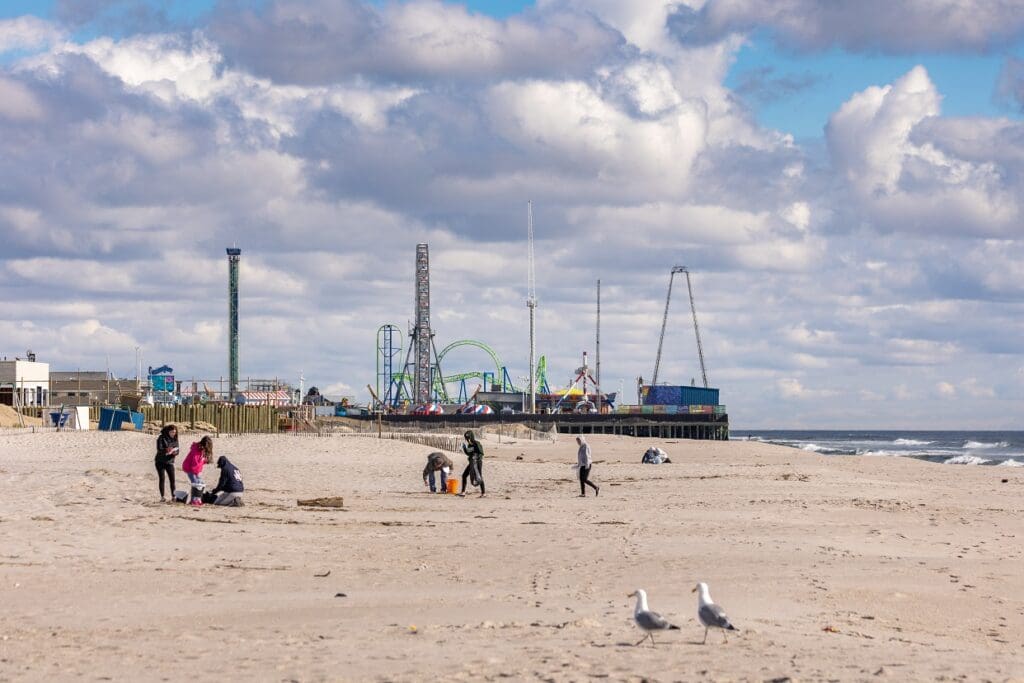Health officials are urging caution at several Jersey Shore beaches after routine testing revealed higher-than-allowed levels of fecal bacteria in the water.
On July 22, the New Jersey Department of Environmental Protection (DEP) issued swim advisories for 11 beach areas across the New Jersey Shore. Water samples collected showed excessive concentrations of Enterococcus—a type of bacteria found in the intestines of both people and animals. While commonly present in nature, high levels can signal contamination and pose health risks for swimmers.
State guidelines cap safe levels of Enterococcus at 100 colony-forming units per 100 milliliters of water. Exceeding that threshold can increase the chance of swimmers getting sick from exposure, potentially leading to gastrointestinal issues like diarrhea or vomiting, as well as eye, ear, and throat infections. The affected beaches span from northern to southern New Jersey and include:
- River and Maxson Avenue Beaches in Point Pleasant (Manasquan River)
- Hancock Avenue Bayfront Beach in Seaside Heights
- William Morrow Beach in Somers Point (Atlantic County)
- L Street Beach in Belmar (Shark River)
- York and Brown Avenue Beaches in Spring Lake
- Highlands Recreation Center Beach (Snug Harbor Avenue)
- Beesley’s Point Beach in Upper Township (Cape May County)
- Brooklyn Avenue and Ocean Street Beaches in Cape May
Contamination often traces back to stormwater runoff, leaky sewage infrastructure, and animal waste from both pets and wildlife.
Despite the elevated bacteria readings, the DEP has not closed these beaches. Swimming is still allowed, but beachgoers are encouraged to exercise discretion—especially families with young children, seniors, or anyone with a compromised immune system.
Statewide, roughly 250 other monitored beach locations had acceptable bacteria levels and remain fully cleared for swimming.
The DEP continues to test coastal and bay waters regularly throughout the summer and updates advisories daily. For the latest beach water quality updates, residents and visitors can visit the NJDEP’s Coastal Water Monitoring page.
The New Jersey Digest is a new jersey magazine that has chronicled daily life in the Garden State for over 10 years.
- Staffhttps://thedigestonline.com/author/thedigeststaff/
- Staffhttps://thedigestonline.com/author/thedigeststaff/
- Staffhttps://thedigestonline.com/author/thedigeststaff/
- Staffhttps://thedigestonline.com/author/thedigeststaff/


